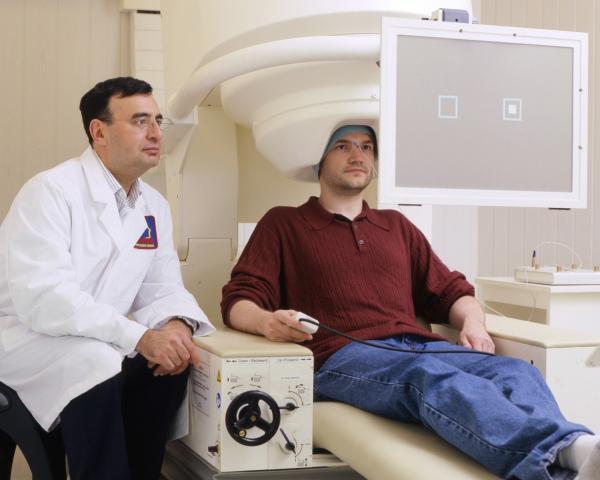Shedding Light on the Deep Darkness of Depression
In 2016, more than one in twenty American adults and one in ten adolescents experienced at least one major depressive episode. For nearly 45,000 of these individuals, their condition was severe enough that it led them to take their own lives. Unfortunately, the medications currently available to treat depression are not always effective and can take up to six weeks to substantially reduce symptoms.
To improve treatment and accelerate symptom relief, IRP senior investigator Carlos Zarate Jr., M.D., is working towards the development of new medications for depression, along with the identification of new drug targets and objective measures called biomarkers that yield information about how a patient is responding to treatment. In recent years, his lab has extensively investigated and assessed the effects of the anesthetic drug ketamine on depression and suicidal thoughts. Many of the patients in his trials have had marked and rapid responses to ketamine, sometimes within a single day or just a couple of hours.
On Tuesday, November 13, Dr. Zarate participated in a Reddit “Ask Me Anything” (AMA) to answer questions from the public about the way depression is currently treated and the latest efforts to develop cutting-edge therapies for the condition. Read on for some of the most interesting exchanges that took place or check out the full AMA on Reddit.


